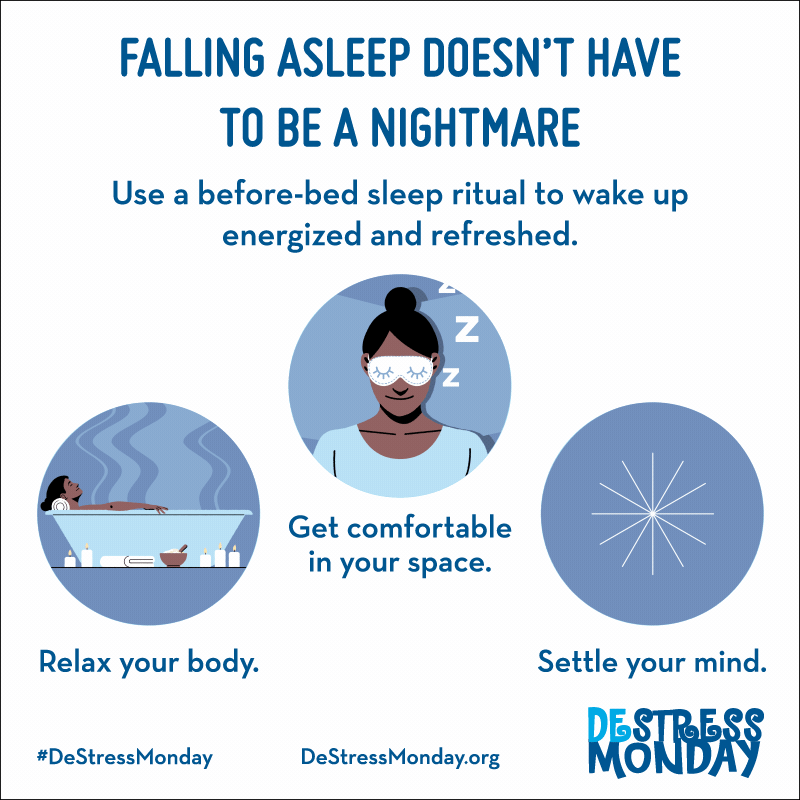Trouble Sleeping? Use These Proven Methods to Wake Up Feeling Rejuvenated
The National Sleep Foundation recommends individuals, regardless of age, get at least seven hours of sleep per night. But in actuality, one in three Americans fail to get the proper amount of shut eye.
Lack of sleep can lead to burnout and can trigger or exacerbate a number of physical and mental health issues, ranging from chronic pain and high blood pressure to anxiety and depression.
And although we may be aware of the consequences of getting too little sleep, that doesn’t make going to bed any simpler. Thankfully, there are proven methods to improve the duration and quality of your sleep. Dr. Pooja Amy Shah, assistant professor at Columbia University and an authority on integrative medicine, offers a number of different techniques that you can incorporate into your nightly ritual to make falling asleep easier.
Dr. Shah’s recommendations can be distilled into three core ideas: relaxing your body, getting comfortable, and settling your mind. To relax the body, Dr. Shah recommends taking a warm shower before bed and using essential oils like lavender, sage, rosemary or eucalyptus, which can calm or sedate the limbic system. Drinking something warm, like a non-caffeinated tea, an hour or two before bed can also help relax the body and prepare it for sleep.
Next, Dr. Shah suggests organizing your bedroom so it is more suitable for a sound slumber. That means darkening the room with curtains or drapes or using a sleep mask. White noise, like a small fan, is also a useful way to create a comforting and calm space. And for those of us who get too hot or too cold, make sure you are able to customize the temperature of your room to fit your personal preferences either by adding blankets, fans, air conditioners, etc.
The last — but arguably most important — element necessary for a successful night’s sleep is to settle your mind. Dr. Shah says that by turning off your electronics or even keeping them out of reach, you can reduce the impact they have on your melatonin levels, a hormone integral to regulating the sleep cycle. As you lie in bed, try to think positive thoughts, specifically things you are grateful for having in your life. This will help quiet your mind and prepare it for sleep.
This Monday, try combining these different elements to find the right blend of techniques so that you can achieve your perfect sleep.
